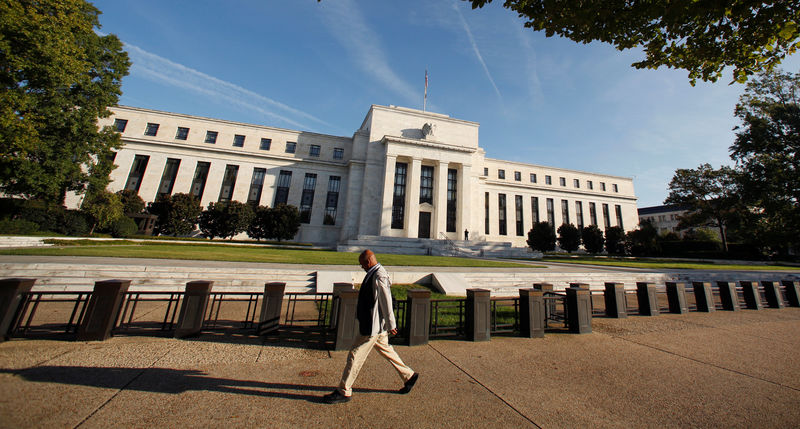By Lindsay Dunsmuir and Jason Lange
WASHINGTON (Reuters) - Several voting Federal Reserve policymakers judged a rate hike would be warranted "relatively soon" if the U.S. economy continued to strengthen but doubts on inflation remained, according to the minutes of the Fed's September policy meeting released on Wednesday.
The minutes of the Sept. 20-21 meeting, at which the U.S. central bank held rates steady, also showed the depth of division over timing.
"Several members judged that it would be appropriate to increase the target range for the federal funds rate relatively soon if economic developments unfolded about as ... expected," the Fed said in the minutes.
Seventeen policymakers participated at the September meeting, of whom 10 had a vote. In the minutes, both voting members and the wider group were divided on how much more they can allow the labor market to strengthen before raising rates.
Some believe that with the United States already near full employment, inflation could rise too quickly if the Fed waits too long.
The minutes said "it was noted that a reasonable argument could be made either for an increase at this meeting or for waiting for some additional information on the labor market and inflation."
U.S. stocks rose slightly following the release of the minutes, while yields on U.S. government debt pared earlier gains.
"They just want a bit more data to be sure. We think they will have those data by the time of the December meeting," said Ian Shepherdson, an economist at Pantheon Macroeconomics.
Three voting members of the rate-setting committee dissented in the September policy statement in favor of an immediate hike, the first time since 2011 that so many have taken such action in the same direction at a single meeting.
In that policy statement, the Fed incorporated new phrasing saying it would maintain current interest rate levels for "the time being," widely seen as a hawkish signal.
According to the minutes, however, a few voters were concerned the inclusion of the phrase "might be misread as indicating that the passage of time rather than the accumulation of evidence" would drive future decision making.
Although Fed policymakers disagree on whether the current 1.7 percent inflation rate is sufficiently close to their 2 percent objective, many voting members remarked that "there were few signs of emerging inflationary pressures."
Since the meeting, Chair Janet Yellen and several other Fed policymakers have said they expect a rate hike by year-end should the labor market and inflation continue to strengthen.
Almost all agree that after another rate hike, the path of interest rates will be much shallower than the Fed's last tightening cycle. At the September meeting, the Fed scaled back the number of rate hikes it expects next year, to two from three.
New York Fed President William Dudley said earlier on Wednesday the Fed could afford to be "gentle" in raising rates as the U.S. economy has "plenty of room to run."
Last Friday's monthly jobs report for September showed that while employment gains are slowing, they are still well above the level required to offset population growth.
There are two more meetings scheduled this year, on Nov. 1-2 and Dec. 13-14. Traders have all but ruled out a move at the November meeting, which takes place just a week before the U.S. presidential election. They currently see about a 70 percent probability the Fed will raise rates in December, little changed from before the minutes, according to data from CME Group (NASDAQ:CME).

Yellen is scheduled to deliver a speech on Friday in Boston, which may offer insight into the Fed's latest thinking.